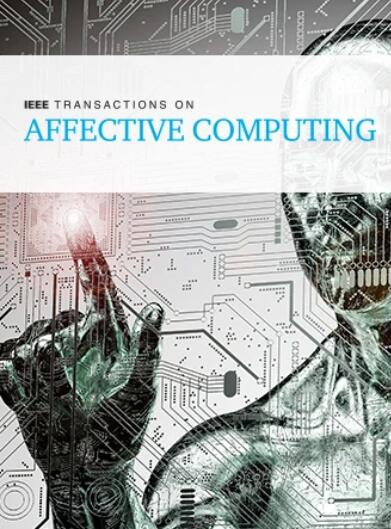Multi-Label Multi-Task Deep Learning for Behavioral Coding
IF 9.6
2区 计算机科学
Q1 COMPUTER SCIENCE, ARTIFICIAL INTELLIGENCE
引用次数: 24
Abstract
We propose a methodology for estimating human behaviors in psychotherapy sessions using multi-label and multi-task learning paradigms. We discuss the problem of behavioral coding in which data of human interactions are annotated with labels to describe relevant human behaviors of interest. We describe two related, yet distinct, corpora consisting of therapist-client interactions in psychotherapy sessions. We experimentally compare the proposed learning approaches for estimating behaviors of interest in these datasets. Specifically, we compare single and multiple label learning approaches, single and multiple task learning approaches, and evaluate the performance of these approaches when incorporating turn context. We demonstrate that the best multi-label, multi-task learning model with turn context achieves 18.9 and 19.5 percent absolute improvements with respect to a logistic regression classifier (for each behavioral coding task respectively) and 6.4 and 6.1 percent absolute improvements with respect to the best single-label, single-task deep neural network models. Lastly, we discuss the insights these modeling paradigms provide into these complex interactions including key commonalities and differences of behaviors within and between the two prevalent psychotherapy approaches–Motivational Interviewing and Cognitive Behavioral Therapy–considered.


行为编码的多标签多任务深度学习
我们提出了一种使用多标签和多任务学习范式评估心理治疗过程中人类行为的方法。我们讨论了行为编码的问题,在行为编码中,人类互动的数据用标签进行注释,以描述感兴趣的相关人类行为。我们描述了两个相关但不同的语料库,由心理治疗会话中的治疗师-客户互动组成。我们通过实验比较了所提出的用于估计这些数据集中感兴趣的行为的学习方法。具体而言,我们比较了单标签和多标签学习方法、单任务和多任务学习方法,并评估了这些方法在结合转向上下文时的性能。我们证明,相对于逻辑回归分类器(分别针对每个行为编码任务),具有回合上下文的最佳多标签、多任务学习模型实现了18.9%和19.5%的绝对改进,相对于最佳单标签、单任务深度神经网络模型实现了6.4%和6.1%的绝对改善。最后,我们讨论了这些建模范式为这些复杂的互动提供的见解,包括所考虑的两种流行的心理治疗方法——动机访谈和认知行为治疗——内部和之间行为的关键共性和差异。
本文章由计算机程序翻译,如有差异,请以英文原文为准。
求助全文
约1分钟内获得全文
求助全文
来源期刊

IEEE Transactions on Affective Computing
COMPUTER SCIENCE, ARTIFICIAL INTELLIGENCE-COMPUTER SCIENCE, CYBERNETICS
CiteScore
15.00
自引率
6.20%
发文量
174
期刊介绍:
The IEEE Transactions on Affective Computing is an international and interdisciplinary journal. Its primary goal is to share research findings on the development of systems capable of recognizing, interpreting, and simulating human emotions and related affective phenomena. The journal publishes original research on the underlying principles and theories that explain how and why affective factors shape human-technology interactions. It also focuses on how techniques for sensing and simulating affect can enhance our understanding of human emotions and processes. Additionally, the journal explores the design, implementation, and evaluation of systems that prioritize the consideration of affect in their usability. We also welcome surveys of existing work that provide new perspectives on the historical and future directions of this field.
 求助内容:
求助内容: 应助结果提醒方式:
应助结果提醒方式:


